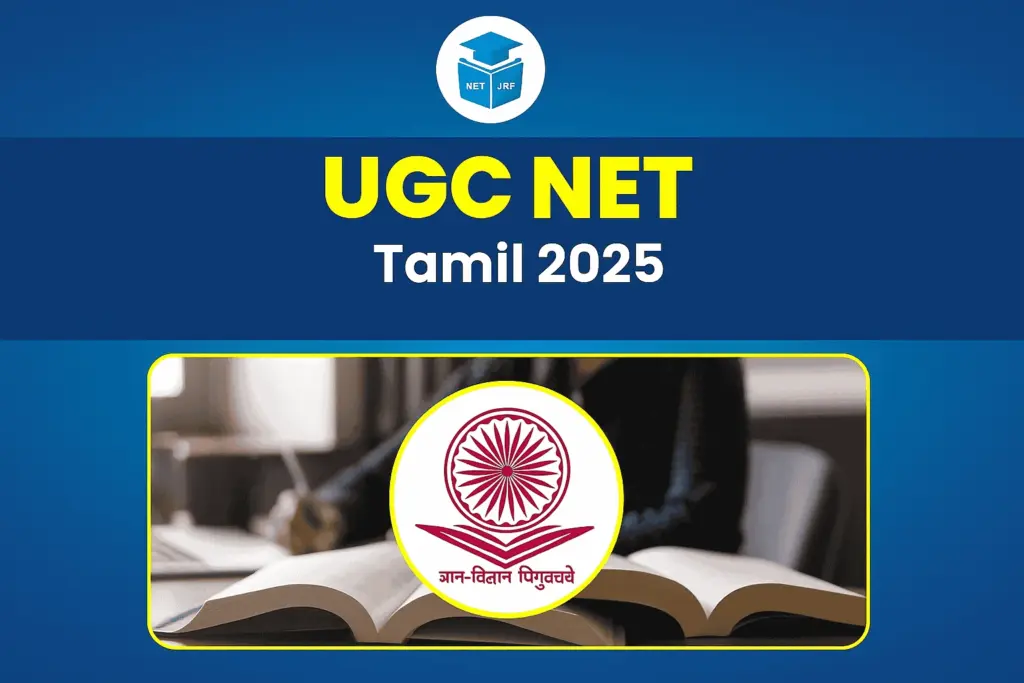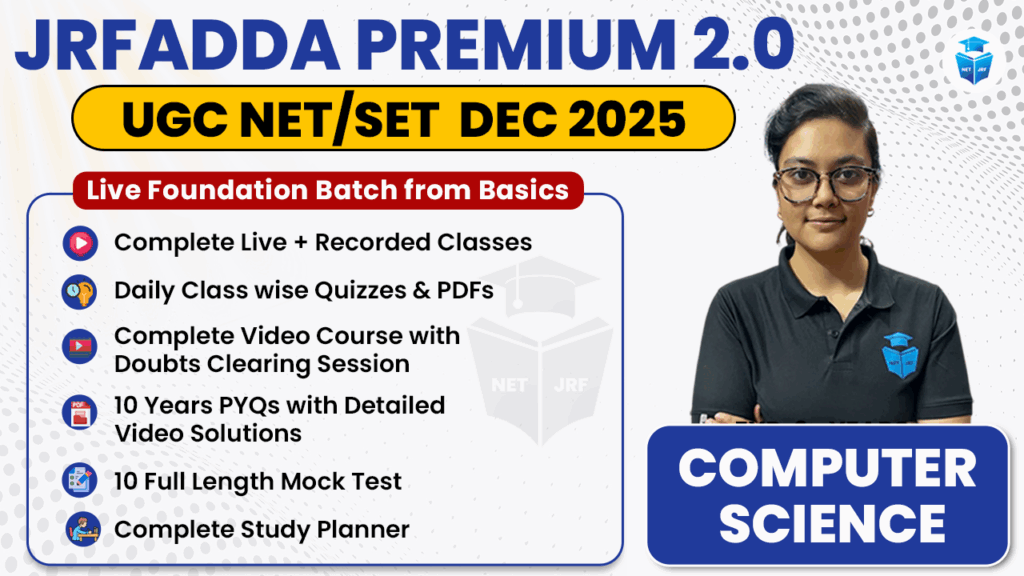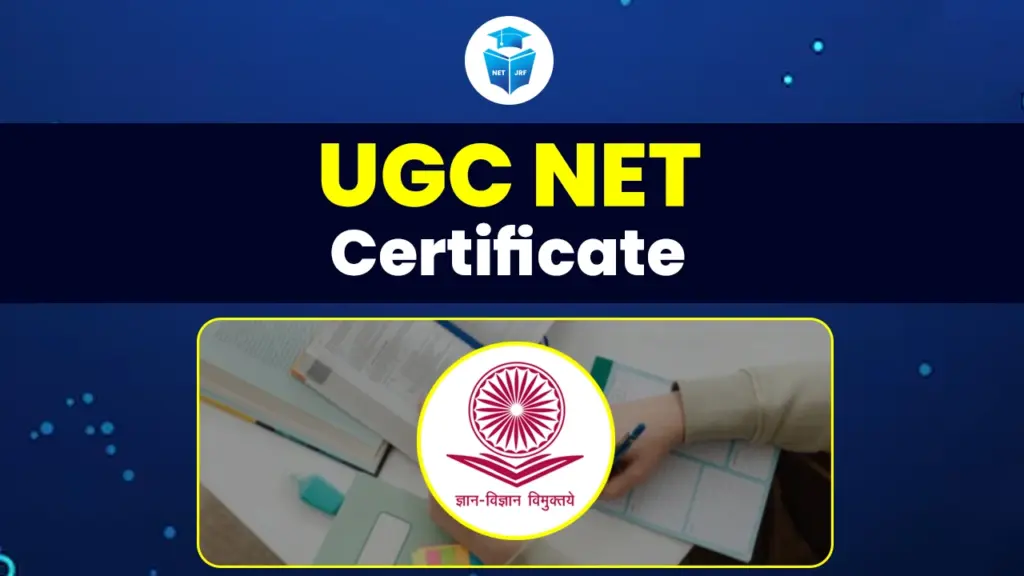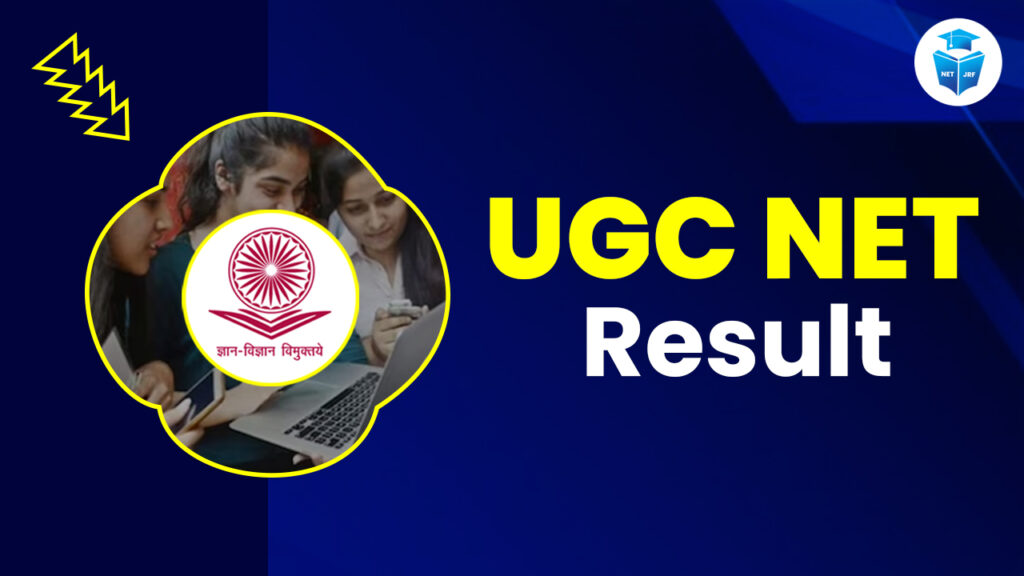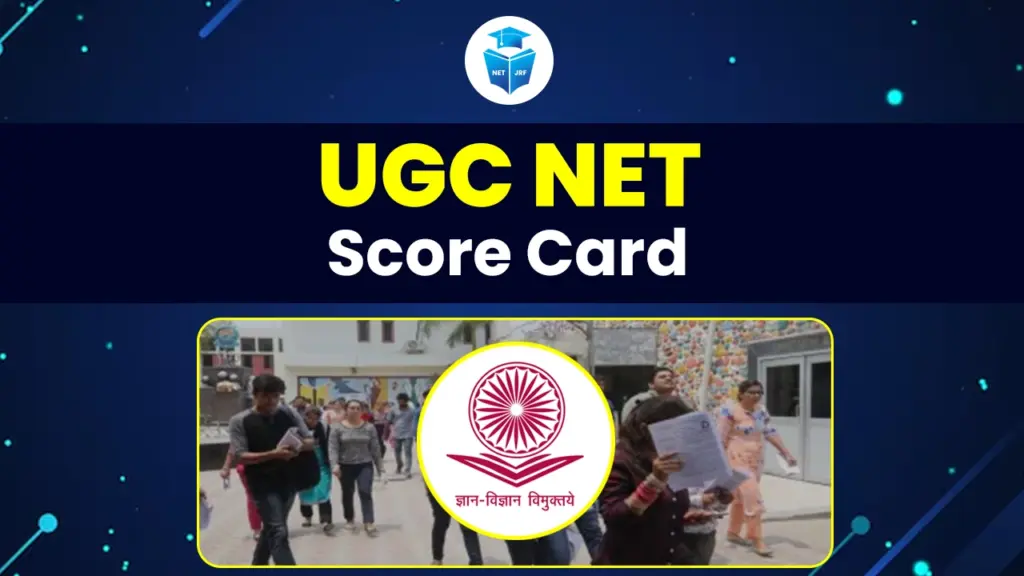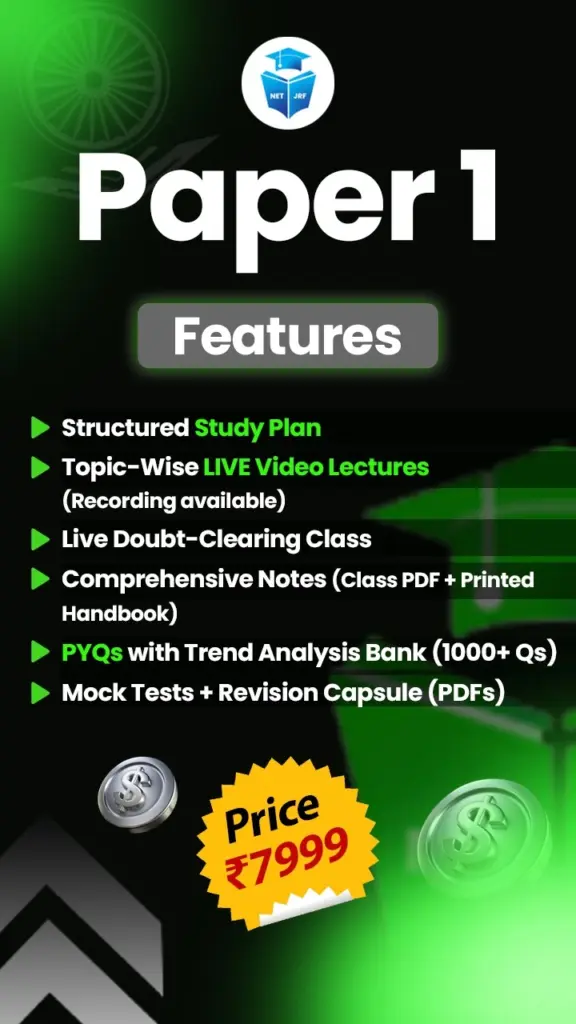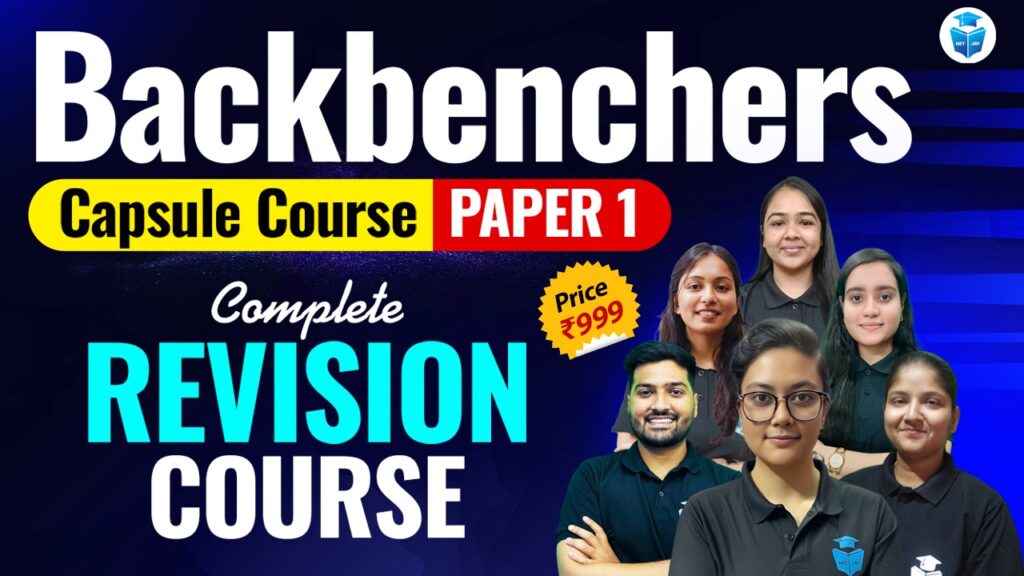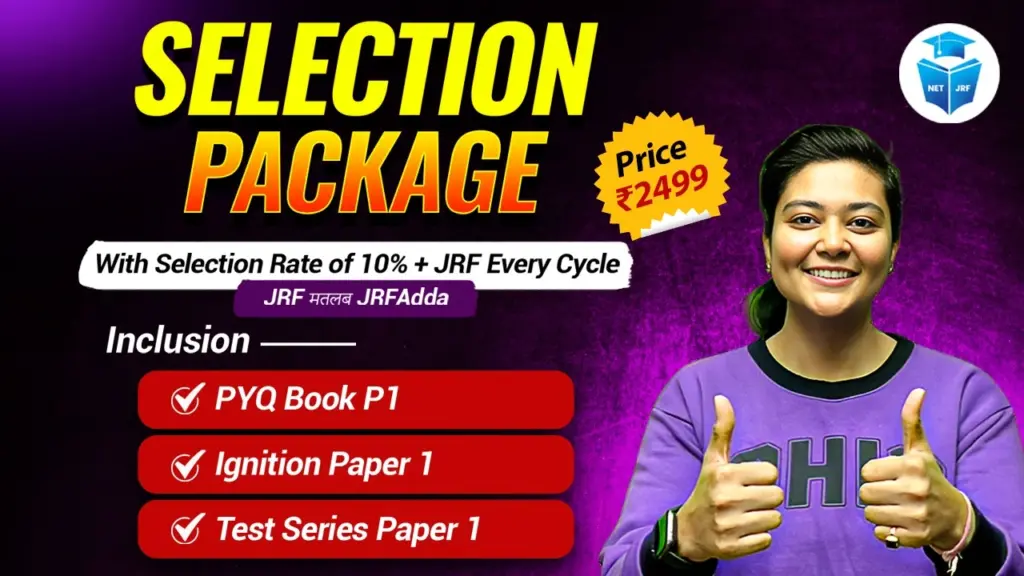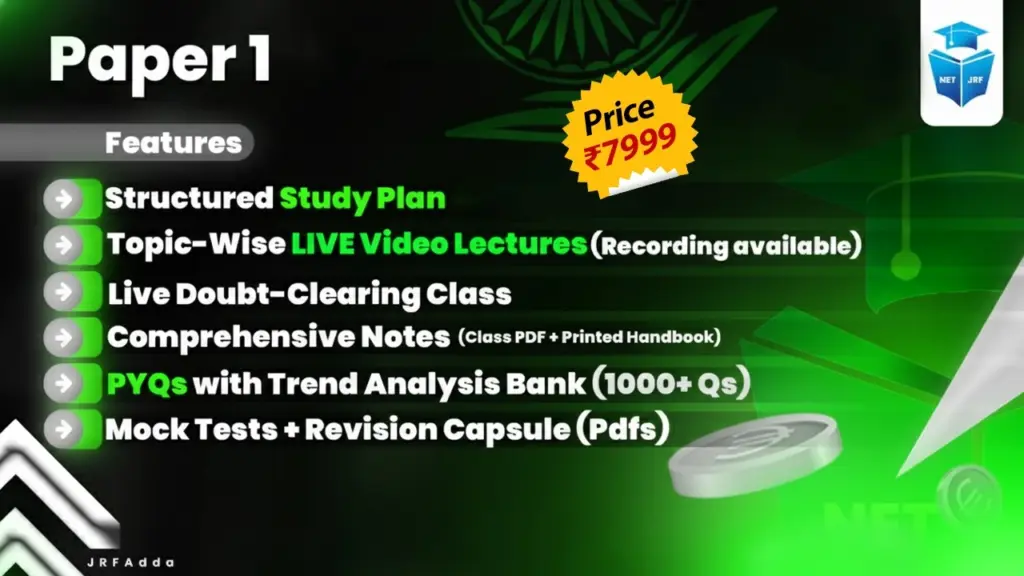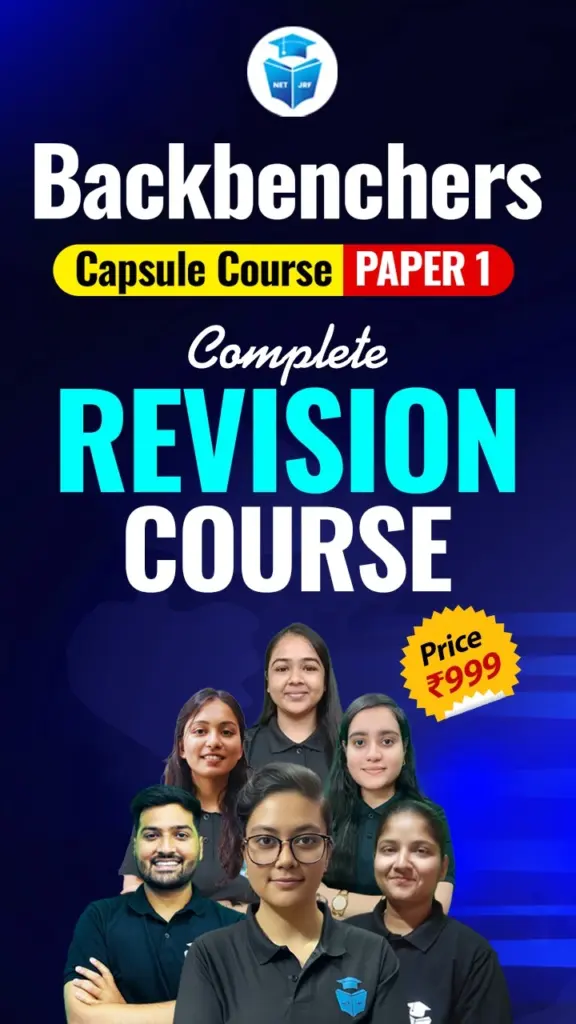UGC NET Tamil Exam 2025 is a national-level examination conducted by the National Testing Agency (NTA) on behalf of the University Grants Commission (UGC) to determine the eligibility of candidates for the roles of Assistant Professor and Junior Research Fellowship (JRF) in Tamil. The exam evaluates a candidate’s proficiency in the Tamil language, literature, and related disciplines.
This article covers a complete overview of UGC NET Tamil 2025, including eligibility criteria, syllabus, exam pattern, preparation tips, and previous year question paper access.
The UGC NET Tamil 2025 for the December cycle has concluded on 6 Jan 2026 shift 2.
Also Read: UGC NET Application Form 2026
UGC NET Tamil 2025 Overview
The exam dates for the UGC NET Exam 2025 have been released, and the exam has concluded on 6 January 2026 in shift 2 for the december session. Below is an overview of UGC NET Tamil 2025:
| Features | Details |
| Exam Name | UGC NET Tamil 2025 |
| Conducting Body | National Testing Agency (NTA) |
| Posts | Assistant Professor & JRF |
| Exam Level | National |
| Exam Date | 6 January 2026 in shift 2 |
| Official Website | ugcnet.nta.nic.in |
Also Read: UGC NET Exam Date 2025
What is UGC NET Tamil 2025?
The UGC NET Tamil Exam 2025 is conducted to determine candidates’ eligibility for the Junior Research Fellowship (JRF), which offers financial support for research in Tamil, and for Assistant Professorship, qualifying them to teach at colleges and universities. The exam evaluates a candidate’s knowledge of Classical and Modern Tamil Literature, grammar, linguistics, literary criticism, and areas like cultural studies and translation theory.
UGC NET Tamil 2025 Eligibility Criteria
To apply for the UGC NET Tamil 2025 examination, the candidates must follow certain eligibility rules set by the National Testing Agency. Here is a detailed description of the criteria for the UGC NET Exam Eligibility.
UGC NET Educational Qualification
The candidates must have the following educational qualifications to be able to apply for the UGC NET Tamil 2025 December cycle:
- Must have a Master’s degree in Tamil or a related field (e.g., Tamil Literature, Linguistics, Comparative Literature) from a UGC-recognized university.
- General Category: Minimum 55% aggregate
- OBC/SC/ST/PwD/Transgender: Minimum 50% aggregate
- Candidates in the final year of their Master’s can also apply provisionally.
UGC NET Age Limit
The candidates applying for the UGC NET Tamil 2025 must fall under the following age limit:
- JRF: Maximum 30 years (Relaxation for reserved categories)
- Assistant Professor: No upper age limit
Nationality
All the candidates pursuing the UGC NET Exam must be Indian citizens.
Also Read: UGC NET Eligibility Criteria 2026
UGC NET Tamil 2025 Exam Pattern
UGC NET Tamil 2025 Exam Pattern consists of two papers conducted in a single session of 3 hours. Paper I tests General Aptitude (Teaching & Research) while Paper II focuses on Tamil subject-specific topics. Both papers are objective in type and conducted online. The UGC NET Exam Pattern for Tamil is mentioned in the table below:
| Paper | Subject | Number of Questions | Marks | Duration |
| Paper I | General Aptitude (Teaching & Research Aptitude) | 50 | 100 | |
| Paper II | Tamil Subject-specific topics | 100 | 200 | 3 Hours (Combined) |
Also Read: UGC NET Exam Pattern 2026 For Paper 1 & 2
UGC NET Tamil 2026 Syllabus
UGC NET Tamil Syllabus 2026 encompasses a comprehensive range of topics essential for candidates preparing for the exam. It includes Tamil Language and Grammar, covering phonetics, morphology, syntax, semantics, and the historical development of the language. The UGC NET Tamil 2026 syllabus is thoroughly explored below:
Tamil Language and Grammar
- Phonetics and Phonology: Sounds and sound systems in Tamil
- Morphology: Word formation, inflection, derivation
- Syntax: Sentence structure and rules of Tamil grammar
- Semantics: Meaning in Tamil language
- Historical development of Tamil language
- Dialects and regional variations
- Tamil script and orthography
- Language functions and usage
Sangam Literature
- Introduction to Sangam Age: Historical context and cultural background
- Sangam Works:
- Ettuthokai (Eight Anthologies):
- Akananuru
- Purananuru
- Kurunthogai
- Ainkurunuru
- Natrinai
- Padirruppattu
- Paripadal
- Kalithogai
- Pathupattu (Ten Idylls)
- Ettuthokai (Eight Anthologies):
- Themes and Genres: Love (akam) and war (puram) themes, ethics, heroism, and morality
- Poetic Techniques and Figures of Speech
- Major poets and their contributions
Medieval Tamil Literature
- Bhakti Literature:
- Alwars and Nayanmars: Devotional hymns and poems
- Impact of Bhakti movement on Tamil literature
- Religious and Philosophical Texts
- Literary works of the Post-Sangam period
- Court poetry and patronage
- Major authors: Kambar, Sekkizhar, and others
- Themes of medieval poetry: devotion, morality, and social issues
Modern Tamil Literature and Literary Trends
- Transition from classical to modern Tamil literature
- Modern Tamil prose and poetry
- Social reform and literary movements:
- Tamil Renaissance
- Dravidian Movement
- Notable modern authors and poets: Bharathiar, Bharathidasan, Kalki Krishnamurthy, Pudhumaipithan, etc.
- Themes: Nationalism, social justice, feminism, and modernity
- Trends: Realism, romanticism, symbolism, postmodernism
- Development of Tamil novel, short story, drama, and essay
Tamil Criticism and Literary Theories
- Classical Tamil poetics: Tolkappiyam, Iraiyanar Akapporul, Nannul
- Tamil literary criticism tradition
- Western literary theories: Structuralism, Post-structuralism, Feminism, Marxism, Psychoanalysis, Postcolonialism, etc.
- Contemporary Tamil literary criticism
- Analysis and interpretation of texts
Tamil Folklore and Culture
- Types of Tamil folklore: Folk tales, proverbs, riddles, ballads, folk songs, etc.
- Role of folklore in Tamil society
- Cultural practices and rituals
- Oral traditions and their preservation
- Folk performing arts and theatre
- Influence of folklore on Tamil literature
Comparative Literature
- Concepts and scope of comparative literature
- Tamil literature in comparison with other Indian literatures
- Comparisons with world literatures
- Translation and intercultural literary exchanges
- Studies of common themes and literary forms
Translation Studies
- Principles and theories of translation
- Challenges of translating Tamil literature
- Translation of poetry, prose, and drama
- Cultural and linguistic issues in translation
- Role of translation in the dissemination of Tamil literature
Tamil Epigraphy and Inscriptions
- Introduction to Tamil epigraphy
- Major Tamil inscriptions: Pallava, Chola, Pandya, Chera, and other dynasties
- Importance of inscriptions in historical and literary studies
- Reading and interpretation of Tamil inscriptions
- Epigraphical sources for Tamil literature and history
Digital and Visual Culture in Tamil Studies
- Impact of digital technology on Tamil literature and culture
- Digital archives and preservation of Tamil texts
- Role of social media and visual media in promoting Tamil culture
- New forms of digital literature: e-books, blogs, podcasts, and multimedia projects
- Visual culture: Tamil cinema, theatre, and visual arts
- Interdisciplinary approaches in Tamil studies
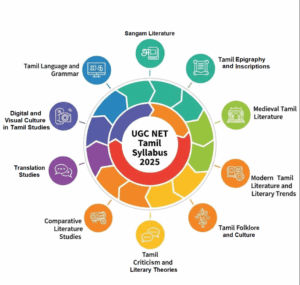
Also Read: UGC NET Syllabus 2026 PDF Download
UGC NET Tamil 2025 Syllabus PDF Link
The candidates can download the detailed UGC NET Syllabus PDF for the Tamil subject from the link provided below:
| UGC NET Tamil 2026 syllabus PDF Link | |
|---|---|
| UGC NET Tamil 2026 syllabus PDF | Download here |
UGC NET Tamil Question Papers (2020-2025)
Accessing the UGC NET Previous Year Question Paper for Tamil is essential for every aspirant to get familiar with the exam pattern, understand the types of questions asked, and identify frequently repeated topics. Practicing these UGC NET Tamil Question Papers helps in evaluating your preparation level and improving time management skills during the actual exam.
| Exam Name | Year | Download PDF |
| UGC NET Tamil (December) |
2025 | Available Soon |
| UGC NET Tamil (June) | 2025 | Download PDF |
| UGC NET Tamil | 2024 | Download PDF |
| UGC NET Tamil | 2023 | Download PDF |
| UGC NET Tamil | 2022 | Download PDF |
| UGC NET Tamil | 2021 | Download PDF |
| UGC NET Tamil | 2020 | Download PDF |
Also Read: UGC NET Previous Question Papers, Last 5 Years’ PDF
Conclusion
The UGC NET Tamil 2025 exam serves as a gateway for aspiring candidates to pursue a career in academia and research in the field of Tamil literature and language. With a well-structured syllabus encompassing classical to modern Tamil literary traditions, grammar, criticism, and digital culture, this exam demands both depth and breadth of knowledge. Stay updated through the official NTA website, plan your study with quality resources, and revise regularly to enhance your chances of success in the December cycle of UGC NET Tamil 2025.
UGC NET Tamil 2025 FAQs
What is the eligibility criteria for UGC NET Tamil 2025?
Candidates must have a Master’s degree in Tamil or related disciplines with a minimum of 55% marks (50% for reserved categories).
Is there an age limit for UGC NET Tamil 2025?
There is no age limit for Assistant Professor posts. For JRF, the upper age limit is 30 years, with relaxation as per government norms.
What is the exam pattern for UGC NET Tamil 2025?
The exam has two papers: Paper 1 with 50 questions (100 marks) and Paper 2 on Tamil subject with 100 questions (200 marks). Both are MCQs conducted online.
Is there negative marking in UGC NET Tamil 2025?
No, there is no negative marking for incorrect answers.
Where can I download the UGC NET Syllabus PDF 2025 for the Tamil subject?
The official UGC NET Syllabus PDF for Tamil is available in the article or on the NTA’s UGC NET website: https://ugcnet.nta.nic.in.

